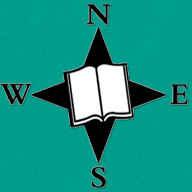Have you read the book of Hezekiah? The natural tendency is to answer “Yes”. After all, Hezekiah is a Bible name and you want people to think you read your Bible. If you answer the question affirmatively, you signal that you accept the assumption behind it. Now you are caught in two lies: you have not read the book of Hezekiah and the book does not exist.
Falsehoods often masquerade as truth. It is an age-old trick. Sennacherib, the king of Assyria, sent his field commander with a large army in tow to wage psychological warfare against King Hezekiah in Jerusalem.1 Three Judean government officials intercepted him just outside the city walls. The messenger had his tongue ready like a bow to shoot lies.2
The commander’s opening line was Tell Hezekiah: This is what the great king, the king of Assyria says. And so the dismantling of Hezekiah’s power and authority begins. Hezekiah is identified as a commoner, not a king. The bullying king, however, is not merely a king; he is “the great king of Assyria”.
The messenger continued: On whom do you depend? If you are trusting in the LORD our God, you are in trouble! Hezekiah took away his high places and altars because he wants you to worship only at his altar in the temple. It is true that Hezekiah removed high places, broke pillars, and cut down the Asherah poles. He even broke Moses’ bronze serpent because people were worshipping it. And yes, he removed the altars scattered around Jerusalem. But the assumption that these actions made Hezekiah weak was false. He cleaned up worship to please the LORD who commanded: “Worship only the LORD your God and worship Him in the place He chose, His temple.”3
Round 3: Let’s make a deal. I will give you 2,000 horses if you can find riders for them. Ha! you are helpless because you don’t have horsemen. That’s why you need Egypt, and Egypt will backstab you. Collecting a large herd of horses was forbidden for the kings of Israel. The mocking tone needles the shame of mighty King Solomon breaking this law.4
The knock-down punch: Besides, the LORD told me to destroy your land. The message has moved from innuendo to misinterpretation to Israel’s dismal history of unfaithfulness to the God on whom Hezekiah depends. At this juncture, the messenger appropriates Hezekiah’s spiritual language. He uses Israel’s covenant name for God to declare that the LORD favors the Assyrian king. How mistaken he is!
Then, for the benefit of citizens in hearing range, the messenger added, Come to my side and I will reward you with your own property until I move you to a place just as good.5 What is the cost of prosperity? In a word, liberty. The Jews will lose their land and be moved to another land at the whim of a foreign despot.
None of the gods of other nations have been able to resist the king of Assyria. So why would the LORD save Jerusalem? Sennacherib is declared invincible; he is greater than all gods. This is his fatal flaw: he equates the false gods of other nations, gods of wood and stone, with the LORD God, the maker of heaven and earth. Why did the LORD save Jerusalem? Because a faithful king responded to the Assyrian threat by praying for rescue “so that all kingdoms of the earth will know that you alone, O LORD, are God.”6
Hezekiah was obedient in holding fast to the LORD and keeping the commands the LORD had given Moses. This volley of untruths came after Hezekiah finished his reforms in Judah. Hezekiah knew the law of God and obeyed it. He was steeped in God’s word so lies did not undo him.
Meanwhile, the Assyrians deported Israel because they had not obeyed the LORD but had violated His covenant. If we ignore the Scriptures we, too, lose our bearings. We become less than animals who always acknowledge their master.7 Our morality gets muddled; we call evil good and good evil.8 We lose our roots9 and are caught by every cultural lie.10 We are destroyed for lack of knowledge.11
Hezekiah knew the Law and called on his prophet Isaiah for guidance. Our resources are much greater! Our world is full of deception but we have the Law as well as complete historical accounts and wisdom books, the written prophets, the Gospels, and the Epistles. As Paul wrote to Timothy, “All Scripture is God-breathed and is useful for teaching, rebuking, correcting and training in righteousness”.12 May we hold fast to the Lord by reading and obeying the Scriptures. The Bible will teach us discernment. Truly, it is a lamp to our feet and a light to our paths.13
1. Isaiah 36
2. Jeremiah 9:3
3. Exodus 20:3-5 and Deuteronomy 12:3-5.
4. See Blog “How the Mighty Have Fallen!”
5. 2 Kings 18:31-32
6. Isaiah 37:20
7. Isaiah 1:3
8. Isaiah 5:20
9. Isaiah 5:24
10. Ephesians 4:14
11. Hosea 4:6
12. 2 Timothy 3:16
13. Psalm 119:105


Leave a Reply